5. Before Sunrise (1995)
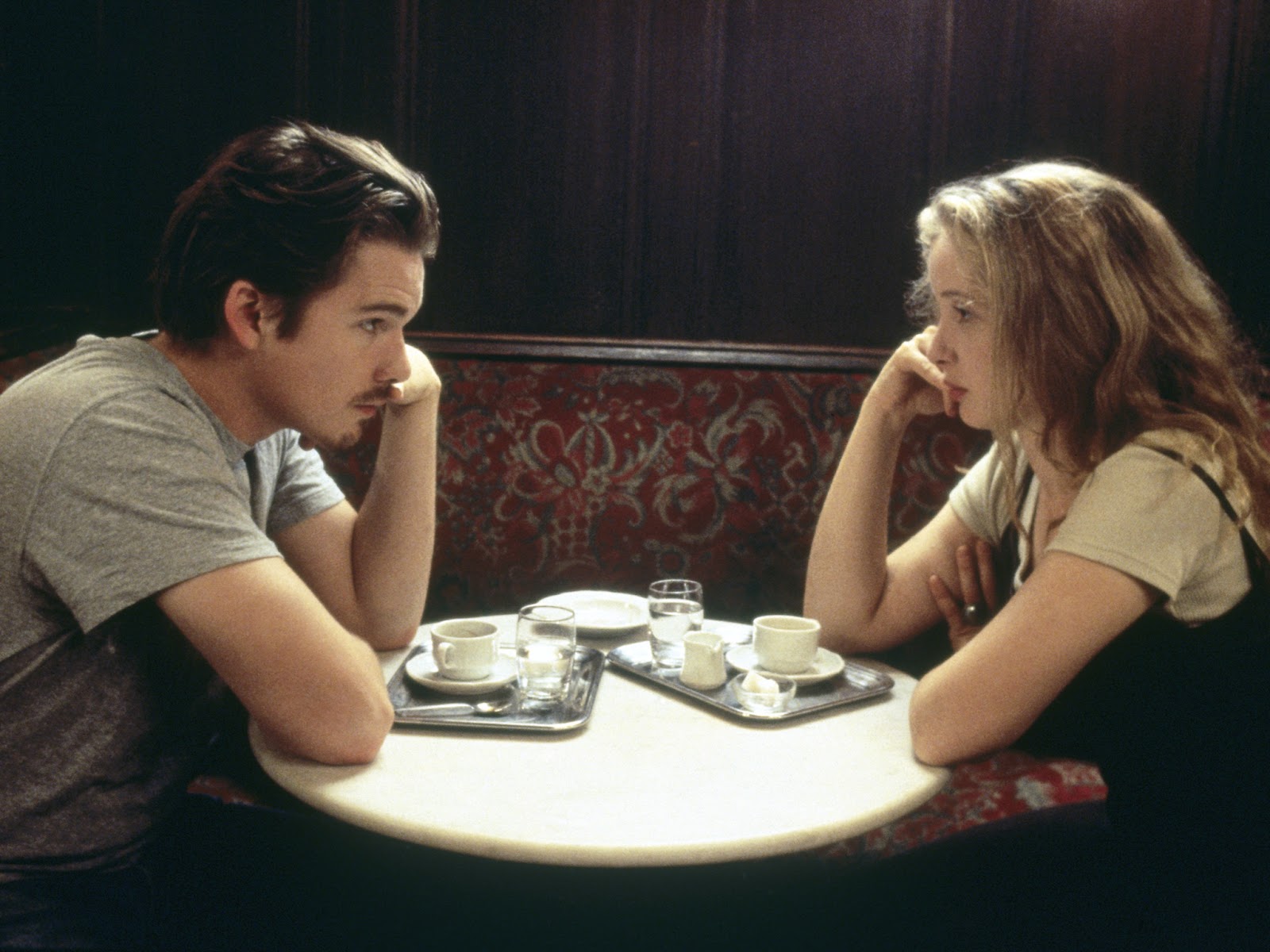
Almost all of Richard Linklater’s films could fit this list. In fact, Kevin Smith’s Clerks is said to have been heavily influenced by Linklater’s 1991 film, Slacker (another cult classic with brilliant dialogues). However, I decided to maintain some variety to this list and chose one of his romantic dramas to talk about next.
Before Sunrise is the first movie in Linklater’s Before trilogy. It follows Jesse (Ethan Hawke), an American tourist, and Celine (Julie Delpy), a Parisian student, after they meet on a train in Europe. They strike up a conversation and, quite visibly, there is one of those rare instant connections. They impulsively get off the train together at Vienna and decide to spend the day together until Jesse takes the flight back home the next morning.
The rest of the film is basically the two young adults just talking, as they roam around the town. They talk about religion, death, first crushes, love…and through their conversations, as Jesse and Celine shed their veneer and get to know each other, we get to know them, too. It becomes clear that the two are not quite the two-peas-in-a-pod most ideal couples seem to be.
Jesse is a cynic with some fantastical notions, Celine a passionate romantic grounded in reality; and the two appear to have widely different views, barely comprehending the others’ perspective at times. Yet, their generous receptiveness towards each other draws them close. What forms seems like an almost organic bond, and that with the delicately measured way in which a very observant Linklater has presented it, would warm any heart.
To me, Before Sunrise seems like the perfect tribute to the beauty of human interaction. Apart from Jesse and Celine’s meandering conversations, Linklater offers us peeks into others around them as well – on the train, in cafes, on the street… It makes one wonder about the innumerable connections that must be forming all around.
Of course, that was the 90’s. In today’s age of cell phones and the internet, our interactions and those around us are remarkably different. Probably because of it, and in spite of Before Sunrise being quite realistic, watching the film today could feel almost like watching a fairytale. Personally, because of this nostalgic and other-worldly feel, I find the film even more charming now.
Note: Although Before Sunrise features in this list of movies with the most enjoyable conversations, I have to admit that my favourite scene in the film is one where not a single word is spoken.
4. The Dreamers (2003)
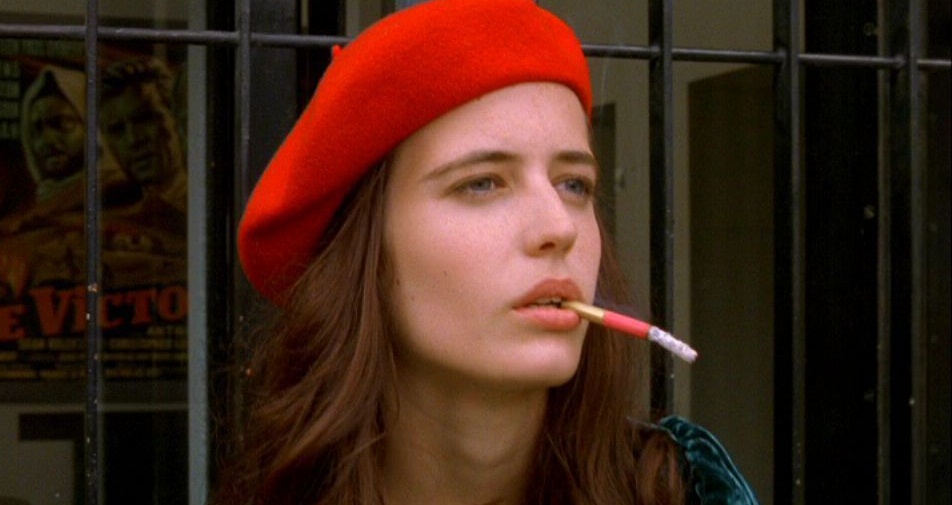
Directed by Bernado Bertolucci, The Dreamers is an enchanting coming-of-age drama set in 1968’s Paris, with the backdrop of the student riots. It is seen from the perspective of an American student, Matthew (Michael Pitt), who strikes up a friendship with a peculiar brother-sister duo.
The three bond over their common love for cinema, and our narrator lands up staying with the siblings at their house while their parents are on vacation. Matthew becomes completely enamoured by the siblings, and it’s not difficult to see why.
Isabelle (Eva Green) and Theo (Louis Garrel) are both beautiful free-spirited people, with such poise that it gives them an air of ethereality. This other-worldliness is carried forth through most of the film as it moves from being a romanticized account of cinephiles to a story of self-discovery, sexual exploration and quiet participation in the unravelling of a larger political movement.
The Dreamers really feels like a strange dream, and makes us one of the dreamers. It isn’t until the end of the film that this dreaminess leaves the screen and forces the characters, and us, to rub our eyes and piece this dream together.
The conversations in the film– about movies, music, politics and familial relationships – seem random at times; but they often serve as cues to our understanding of the film and its characters. Even when Matthew and Theo argue as they compare Buster Keaton and Charlie Chaplin, and Eric Clapton and Jimi Hendrix, we get a glimpse of the inner workings of their minds.
Often, The Dreamers draws analogies between film and politics. Theo talks about their fan-worship of French New Wave cinema being “our very own cultural revolution”, and about Mao being like a movie director making an epic. Needless to say, this is a movie that leaves you thinking.
3. Pulp Fiction (1994)
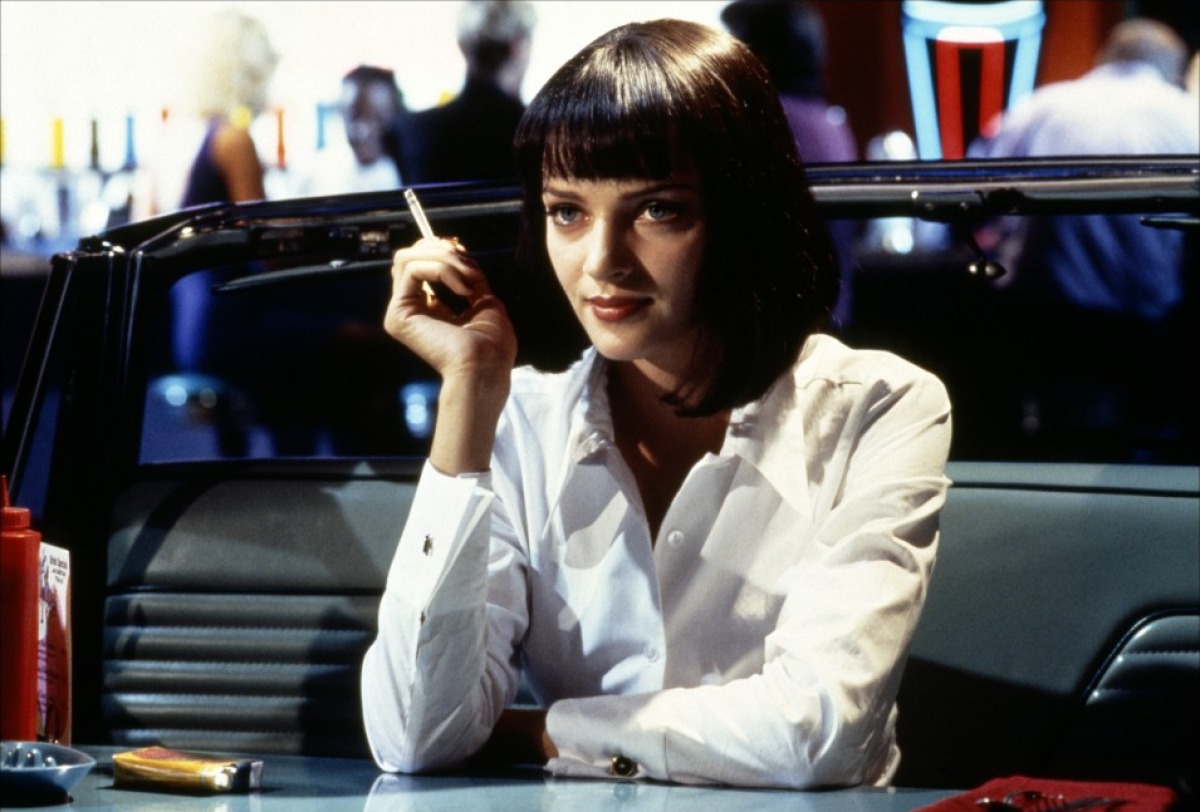
If there is one director whose work can guarantee brilliant dialogue, it would be Quentin Tarantino; and if there is one Tarantino film that most us have watched, it would most likely be Pulp Fiction. A crime film with a wicked sense of humour, it is one of the most influential films in cinema and pop-culture world-wide.
Pulp Fiction follows a non-linear plot with various interrelated storylines. The primary stories revolve around four protagonists – hit-men Vincent Vega (John Travolta) and Jules Winnfield (Samuel L. Jackson), their gangster boss’s wife, Mia Wallace (Uma Thurman), and aging boxer Butch Coolidge (Bruce Willis).
Vincent and Jules are assigned the task of retrieving a mysterious briefcase for their boss. Vincent is also asked to spend the evening with Mia, whose husband is extremely possessive.
Butch, on the other hand, is on the run from the gangster after having double-crossed him in a deal they made over Butch’s latest boxing match. There are several other intersecting story lines, too; all of which come together in a tale of violence, redemption and hilarious irony.
The conversations in Pulp Fiction are some of the funniest, most quoted and most memorable moments in the film. “I’m American, honey. Our names don’t mean shit.”– sounds familiar? From discussing if foot massages mean anything to what an ‘act of God’ is, the film is a relay of conversations we could see ourselves having too.
When the two hitmen talk about the “little differences” between Europe and America, they discuss the varying norms of having beer in a movie theatre, the legalities of hash, the nomenclature of burgers, and exclaim with disgust at the thought of mayonnaise on French fries.
Amidst all the violence (and there’s lots of it), the casual conversations between criminals grants them a sense of normalcy that is often ignored. They provide depth to the characters. It is because of these conversations that we can relate to those characters that are almost legendary today. These, with the smart dialogue, beautifully stylized shots and music perfectly capturing the tone of the film, make Pulp Fiction a must-watch.
2. Annie Hall (1977)
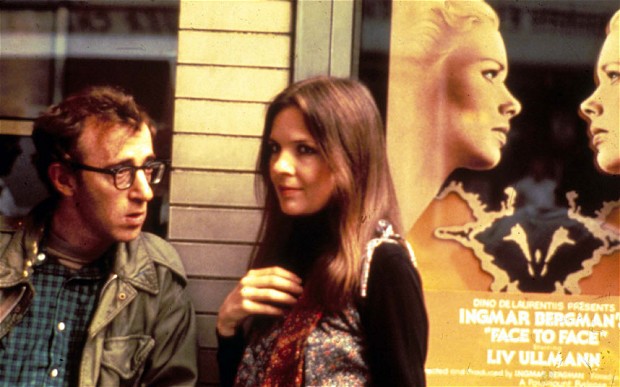
Woody Allen’s highway to fame – Annie Hall – is a comedy about love and the growing-out-of-love. The film centres on Alvy Singer (Woody Allen), a neurotic stand-up comedian, and Annie Hall (Diane Keaton), an insecure aspiring singer.
Annie Hall starts off with a monologue by Alvy, where he tells us about the namesake of the film – his ex-girlfriend – and wonders what went wrong in their relationship. Right there, in the first encounter, we get a glimpse of the self-depreciating humour and neurosis that we now know to be typically associated with Woody Allen.
Sharing a joke by comedian Groncho Marx – “I don’t want to belong to any club that will accept people like me as a member”, Alvy tells us that that is what he feels about his relationships with women. And so he takes us through a thoroughly funny and touching flashback where we see some significant moments in Annie and Alvy’s relationship.
To me, the entire film really feels like one conversation that Alvy has with the audience; somewhat like one you’d have with a heartbroken friend who is done wallowing in his sorrow and is now just trying to make sense of the whys and hows of what happened.
Similar to real-life reminiscence, Annie Hall follows a non-linear narration with Alvy occasionally stepping out of a scene to speak to us. There are a few bizarre visuals in the movie which effectively portray the imagination and exaggerations we often incorporate in our funny anecdotes.
Moreover, the moments which Alvy chooses to remember and share with us all involve a lot of talking. Whether it’s Alvy and Annie’s first meeting, their arguments, glimpses of past relationships, Alvy’s childhood memories, or even the most intimate scenes, they are all fast-talking interactions. The dialogue is smart and witty, with a lot of cultural references.
The characters discuss Bob Dylan, the Kennedy assassination, Hollywood, aesthetic guidelines in photography, death, and a host of other varied subjects. The film also uses psychoanalysis and Freudian concepts for comic effect, but a closer look reveals layers of interpretation.
Annie Hall is widely considered to be one of the most influential films made. Watching it now, it’s not difficult to see how it has inspired many modern relationship comedies. You may watch Annie Hall as a date movie or just for the laughs, but as anyone who has watched it would tell you – it is so much more.
1. Clerks (1994)
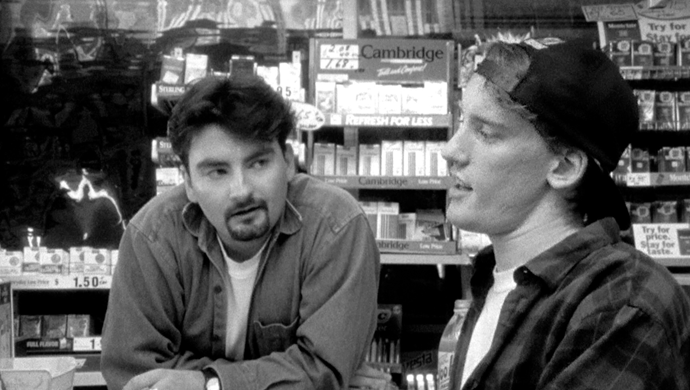
Directed by Kevin Smith, this black-and-white comedy presents the working hours of a day in the lives of Dante Hicks (Brian O’Halloran) and Randal Graves (Jeff Anderson) – two disenchanted 20-something store clerks.
Dante, employed at a convenience store, is forced to work there on his day off. He is an embittered man, defensive about his own shortcomings, which is reflected quite aptly by his oft-repeated exclamation – “I’m not even supposed to be here today!” Randal, who works at the adjacent video store, is a slacker in the mould of an existential philosopher. When he says, “This job would be great if it wasn’t for the f**king customers”, we know that it pretty much summarizes his attitude towards work and life in general.
Almost the entire film is a series of hilarious, often weird and explicit verbal exchanges between the two clerks and their encounters with different people. There is an interesting critique of the Rebels from Return of the Jedi, which turns into a discussion about workers’ personal politics.
Other conversations are as wide-ranging as a discussion on embarrassing ways to die and a lightly-delivered, yet impactful lecture on free will. Just as in real life, the discussions rarely offer any conclusions. However, as we continue watching the film, we see that a conversation does not necessarily end with a single discussion.
A thought, introduced by a character in the movie, is later unwittingly picked up by another character in an unrelated scene, and once again picked up by us in the audience once the credits start rolling.
By the end of the movie, all the seemingly random exchanges are somehow tied together into one coherent whole, with a poignant life lesson as a bi-product. With this inventive, almost poetic, presentation of completely relatable ideas, Kevin Smith has started a conversation that has been going long enough for Clerks to now be deemed a cult classic.
Note: Pay close attention to the conversation where Dante boasts to his girlfriend about the skewed importance of a man’s sexual prowess over a woman’s in achieving mutual satisfaction in bed.
That interaction is interrupted, and we too are forced to push it to the back of our minds. However, a bizarre turn in the story later turns out to be a hilarious come-back to Dante’s comment. I hope you don’t miss it, because it’s one majestic slap-on-the-face.
Author Bio: Debasmita Phukan is a lifelong student of the human mind. With a degree in clinical psychology, she now continues her education through movies, books and the world around her.